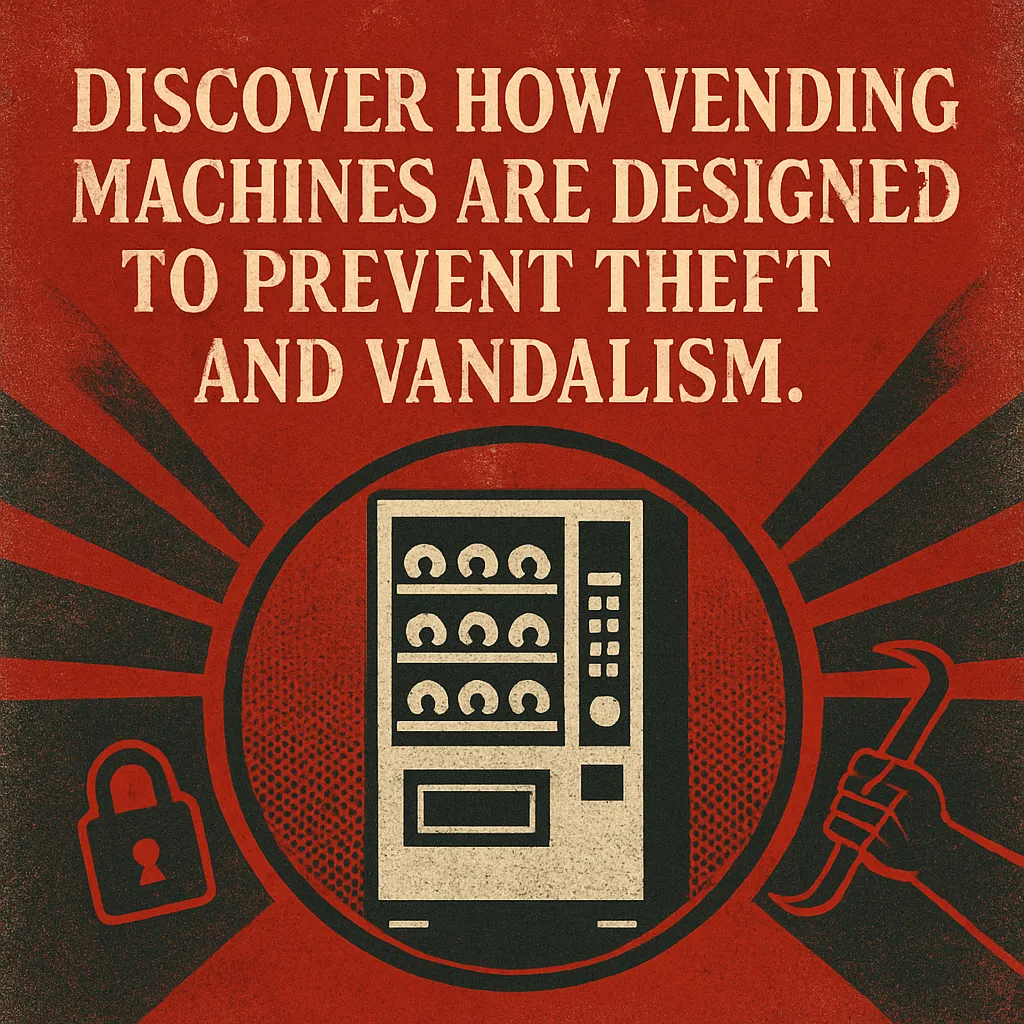What Security Features Do Vending Machines Have?
Discover how vending machines are designed to prevent theft and vandalism, protecting products and payments.
Back to Vending FAQs ResourcesDiscover how vending machines are designed to prevent theft and vandalism, protecting products and payments.
Back to Vending FAQs ResourcesModern vending machines integrate robust physical and technological safeguards to deter theft, prevent vandalism, and ensure the safety of both products and revenue.
![]() Reinforced construction and advanced locking mechanisms
Reinforced construction and advanced locking mechanisms
![]() Cashless payment systems reduce cash on-site and theft incentive
Cashless payment systems reduce cash on-site and theft incentive
![]() Real-time monitoring and anti-tampering alerts for peace of mind
Real-time monitoring and anti-tampering alerts for peace of mind

In today's diverse environments, vending machines are essential convenience points, but their security is paramount. The modern vending industry has evolved significantly, incorporating advanced features to safeguard machines against theft, vandalism, and unauthorized access. Understanding these security measures is critical for businesses looking to install vending machines and for operators seeking to protect their assets.
The foundation of vending machine security lies in robust physical construction. This includes reinforced steel cabinets, often made from heavy-gauge steel, designed to resist brute force attacks. Doors are typically secured with multiple, complex locking mechanisms that are difficult to pick or force open. Many machines also feature anti-pry bars or recessed door designs to prevent leverage points that vandals might exploit. For machines operating outdoors or in less supervised areas, additional considerations like anchoring the machine to the ground can prevent it from being moved or tipped over, as discussed in best practices for security for vending machines in public buildings.
Beyond physical strength, technology plays a crucial role. One of the most impactful advancements is the widespread adoption of cashless payment systems. By minimizing the amount of physical cash stored within a machine, the incentive for theft is greatly reduced. These systems often integrate with secure networks, encrypting transaction data to protect sensitive information. Furthermore, advanced machines can incorporate telemetry systems that allow for remote monitoring, sending real-time alerts if a door is unexpectedly opened, if the machine is tilted, or if other unusual activities occur. AI-powered vending coolers, for example, use internal cameras and sensors for precise loss prevention and inventory tracking, as detailed in this guide to AI cooler security and loss prevention.
Security measures also extend to protecting the integrity of the products themselves. Anti-vandalism product delivery systems ensure that items are dispensed only after payment is confirmed, often using drop sensors to verify successful delivery. Some machines have mechanisms that prevent customers from manipulating internal components to obtain free products. Shatter-resistant polycarbonate windows replace traditional glass, offering resilience against impact while maintaining visibility. For operators, proper inventory management and regular checks are also vital to detect any signs of tampering or pilferage, reinforcing the need for diligence that is also highlighted in how to maintain a vending machine.
The main concerns include theft of cash or products, vandalism, tampering, and unauthorized access to internal components.
They often feature reinforced steel cabinets, heavy-duty locks, anti-pry mechanisms on doors, and secure cash boxes or cashless payment systems.
Yes, many machines include anti-vandalism product delivery systems, such as drop sensors to ensure product delivery, anti-tilt mechanisms, and secure product trays.
Advanced technology includes cashless payment systems, telemetry for remote monitoring and alerts, surveillance cameras, and AI-powered loss prevention in smart coolers.
Cashless systems reduce the amount of physical cash in machines, thereby decreasing the incentive for theft and minimizing the risk of break-ins.
Features like shatter-resistant polycarbonate windows, tamper-proof keypads, and robust exterior materials help protect against vandalism.
Outdoor machines often have additional weatherproofing, thicker gauge steel, built-in alarms, and are typically anchored to the ground to prevent relocation.
Many modern machines are equipped with tilt sensors, door alarms, and remote monitoring systems that can send real-time alerts to operators if tampering or abnormal activity is detected.
Encryption protocols protect transaction data, while internal components are usually secured behind multiple locks and access panels. AI coolers specifically use internal cameras for loss prevention.
Strategic placement in well-lit, high-traffic areas, regular surveillance, ensuring machines are properly anchored, and partnering with reputable vending services are key.